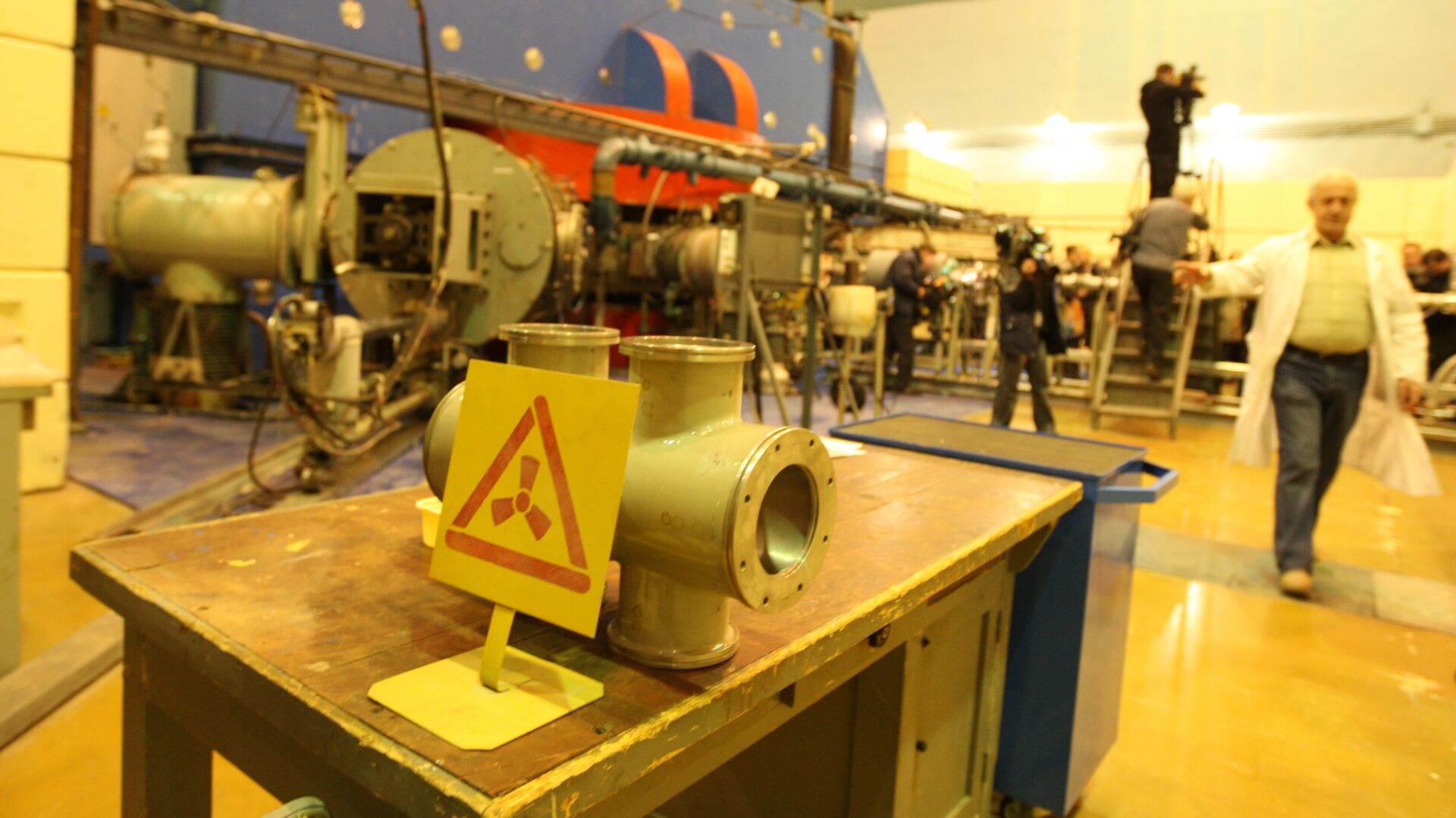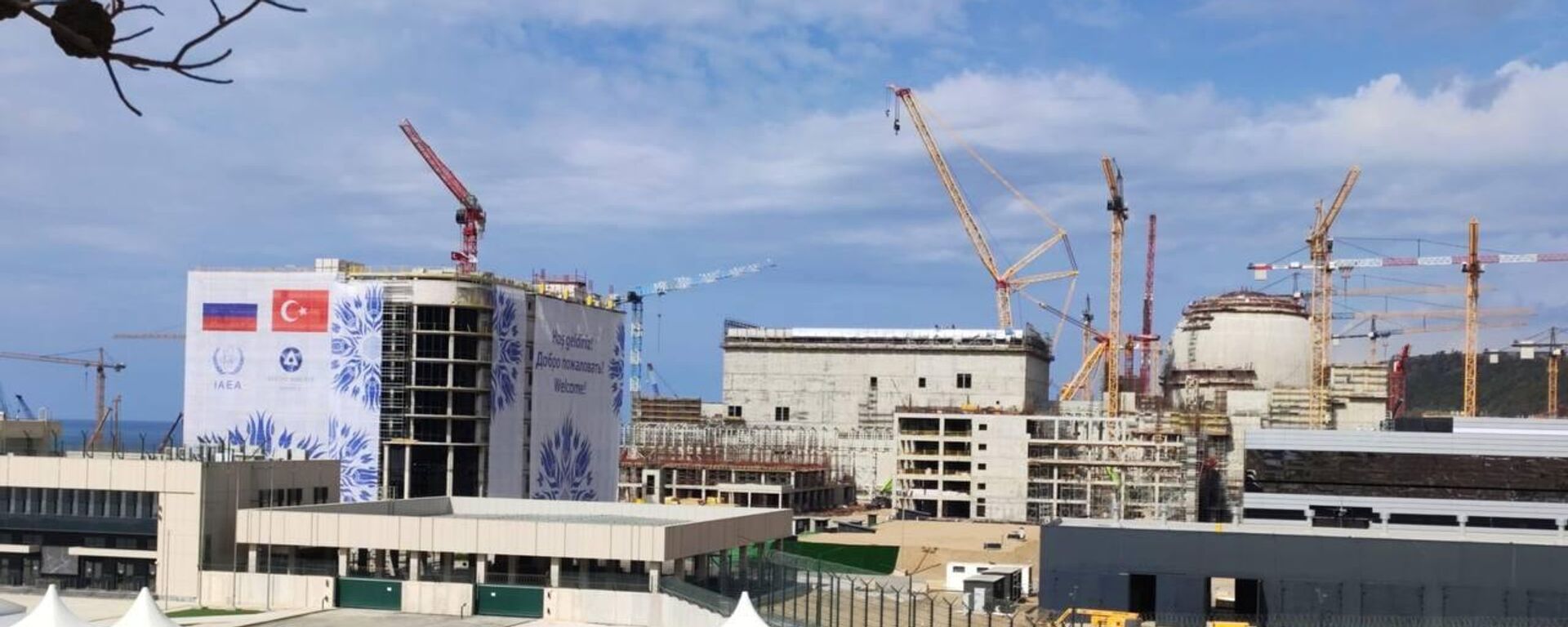https://sputnikglobe.com/20230705/mitsubishi-to-oversee-development-of-next-generation-npps-in-japan-1111671502.html
Mitsubishi to Oversee Development of Japan's Next-Generation Nuclear Power Plants
Mitsubishi to Oversee Development of Japan's Next-Generation Nuclear Power Plants
Sputnik International
The Japanese Ministry of Economy, Trade and Industry intends to make the Mitsubishi Heavy Industries (MHI) engineering giant the main company overseeing the development and design of next-generation nuclear power plants (NPPs), Japanese newspaper reported on Wednesday.
2023-07-05T07:41+0000
2023-07-05T07:41+0000
2023-07-05T12:40+0000
economy
japan
fukushima daiichi nuclear power plant
mitsubishi heavy industries
nuclear plant
nuclear energy
https://cdn1.img.sputnikglobe.com/img/07e7/07/05/1111671310_0:78:3366:1971_1920x0_80_0_0_ba7fa76dedc8fc6e801577454bd8bd18.jpg
The initiative will help accelerate the development of high-safety nuclear power plants and contribute to the goal of ensuring stable electricity supplies and decarbonizing the energy sector, the report said. MHI, the project's prime contractor, will have to coordinate the work of general contractors in the development of high-temperature helium-cooled reactors and fast neutron reactors. It will also be responsible for process control, liaison with the state regulator and interaction with local authorities. The company will be given the role of a command center for the development of new-generation reactors, which will also be able to pool the capabilities of power companies and research institutes. The use of high-temperature reactors, which use helium gas as a coolant, can prevent a hydrogen explosion in the event of an accident, like what happened with the Fukushima Daiichi reactors in 2011. In addition, their high temperatures can be used to produce hydrogen. A test reactor of this type is expected to become operational in the 2030s, the newspaper said. A fast neutron reactor will make it possible to reduce the amount of radioactive waste by using nuclear fuel more efficiently. The test reactor is scheduled to begin operation in the 2040s. The Japanese government has allocated a budget of 9 billion yen ($62 million) for the development of two types of next-generation reactors over three years, starting in 2023.
https://sputnikglobe.com/20230427/building-akkuyu-how-russia-helped-turkiye-power-its-nuclear-heart-1109871071.html
japan
Sputnik International
feedback@sputniknews.com
+74956456601
MIA „Rossiya Segodnya“
2023
Sputnik International
feedback@sputniknews.com
+74956456601
MIA „Rossiya Segodnya“
News
en_EN
Sputnik International
feedback@sputniknews.com
+74956456601
MIA „Rossiya Segodnya“
Sputnik International
feedback@sputniknews.com
+74956456601
MIA „Rossiya Segodnya“
japan, nuclear energy, japan nuclear, npp, mitsubishi heavy industries
japan, nuclear energy, japan nuclear, npp, mitsubishi heavy industries
Mitsubishi to Oversee Development of Japan's Next-Generation Nuclear Power Plants
07:41 GMT 05.07.2023 (Updated: 12:40 GMT 05.07.2023) TOKYO (Sputnik) - The Japanese Ministry of Economy, Trade and Industry intends to make the Mitsubishi Heavy Industries (MHI) engineering giant the main company overseeing the development and design of next-generation nuclear power plants, a Japanese newspaper reported on Wednesday.
The initiative will help accelerate the development of high-safety nuclear power plants and contribute to the goal of ensuring stable electricity supplies and decarbonizing the energy sector, the report said.
MHI, the project's prime contractor, will have to coordinate the work of general contractors in the development of high-temperature helium-cooled reactors and fast neutron reactors. It will also be responsible for process control, liaison with the state regulator and interaction with local authorities. The company will be given the role of a command center for the development of new-generation reactors, which will also be able to pool the capabilities of power companies and research institutes.
The use of high-temperature reactors, which use helium gas as a coolant, can prevent a hydrogen explosion in the event of an accident, like what
happened with the Fukushima Daiichi reactors in 2011. In addition, their high temperatures can be used to produce hydrogen. A test reactor of this type is expected to become operational in the 2030s, the newspaper said.
A fast neutron reactor will make it possible to reduce the amount of radioactive waste by using nuclear fuel more efficiently. The test reactor is scheduled to begin operation in the 2040s.
The Japanese
government has allocated a budget of 9 billion yen ($62 million) for the development of two types of next-generation reactors over three years, starting in 2023.



